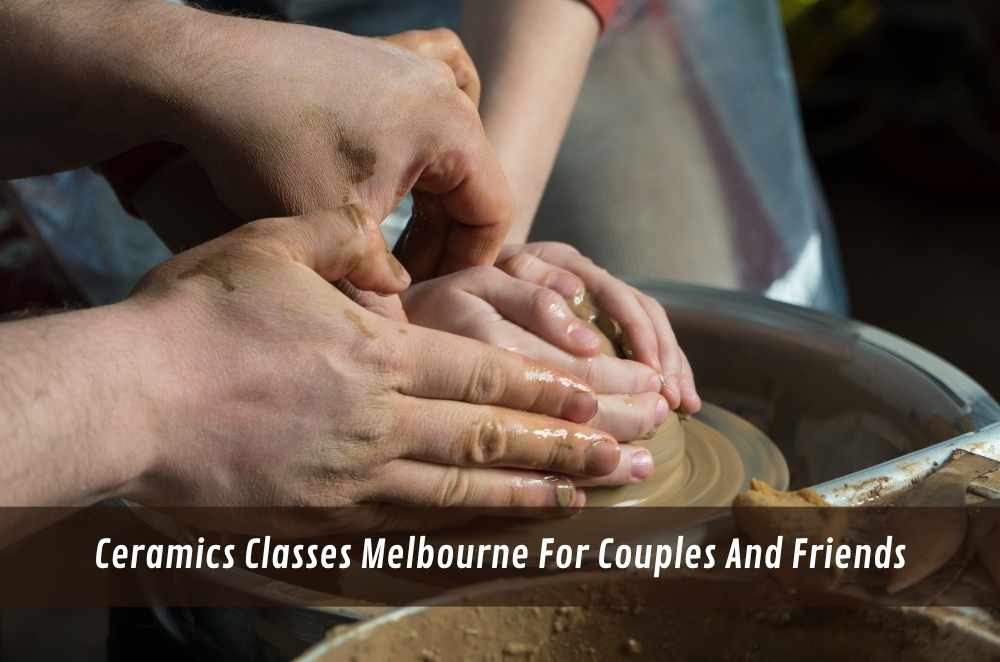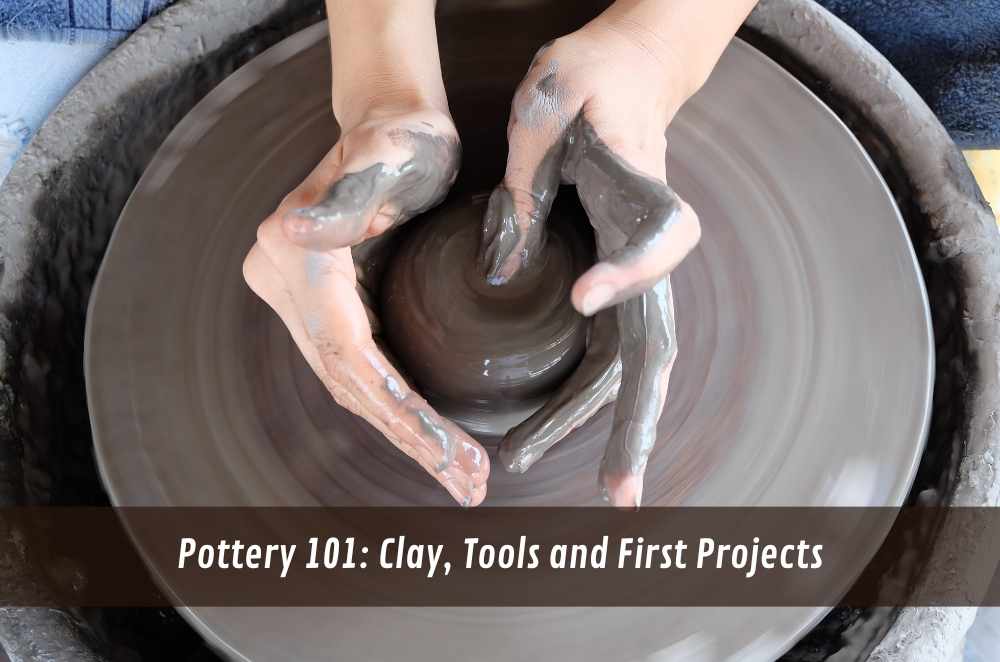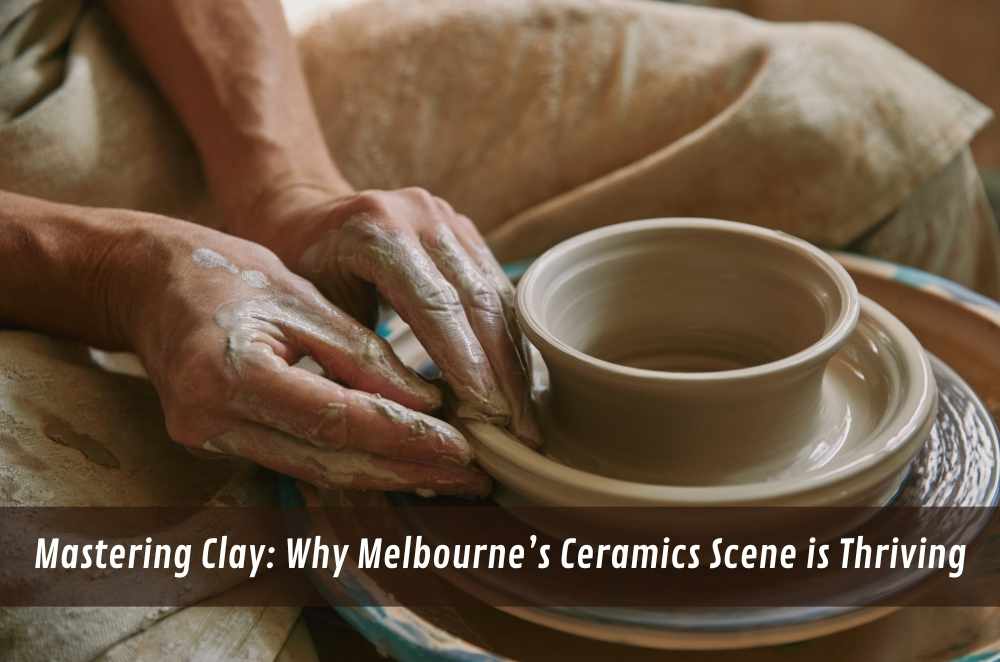
Something is grounding about working with clay. Whether you’re moulding a coffee mug, throwing a bowl on the wheel, or just getting your hands messy, ceramics has a way of pulling you into the present. If you’ve ever caught yourself Googling “ceramic workshop Melbourne” during a scroll session, chances are you’re craving more than just a new hobby — you’re looking for something tactile, creative, and calming.
But how do you find a studio that’s right for you? With so many classes on offer, from beginner-friendly crash courses to full-blown term programs, it can be hard to know where to start. That’s why we’ve put together this simple guide to help you choose the ideal pottery class Melbourne experience for your skill level, budget, and learning style.
Why take a ceramics workshop in the first place?
Maybe you’ve always been a hands-on person. Or maybe your 9-to-5 is all screens and meetings, and you’re craving something that brings you back into your body. Either way, ceramics offer more than just cute homeware.
Here’s what people often gain from their first class:
Mindfulness and stress relief through repetitive, focused movement
Creative expression, even for those who “aren’t artistic”
Social connection in group workshop settings
A sense of accomplishment, seeing a finished piece you made yourself
Many Melburnians are turning to tactile hobbies as a way to reconnect with themselves, especially post-lockdown, when so many people reassessed what “time well spent” actually means.
Types of ceramic workshops available
Not all ceramic classes are created equal. Depending on your goals, here are some formats you’ll come across in Melbourne:
1. Taster sessions (1–2 hours)
Perfect for beginners, these usually focus on hand-building a basic item like a bowl or vase.
2. Multi-week courses
Great if you want to build foundational skills, such as wedging, trimming, glazing, and more.
3. Wheel throwing workshops
Aimed at learners keen to master the pottery wheel. Often a bit messier, but incredibly satisfying.
4. Private or small group classes
Ideal for events like birthdays, team-building, or just more focused instruction.
No matter the format, a quality workshop should offer clear instruction, access to tools and materials, and guidance from a skilled ceramicist. If the studio also fires your pieces and lets you take them home? That’s a bonus.
What to expect in your first workshop
Walking into your first ceramic class can feel both exciting and intimidating. Expect to roll up your sleeves, get a bit messy, and feel like a kid again — in the best way.
Most beginners start with hand-building techniques, such as:
Pinching (think small bowls or cups)
Coiling (great for vases or taller shapes)
Slab construction (for plates or planters)
You’ll likely decorate and glaze your piece during the session or return another day once it’s bisque-fired. From there, your work goes through a final glaze fire, and then you get to take it home.
Wheel throwing might be introduced depending on the studio, but for that, a full “wheel throwing techniques” course is helpful to brush up between classes.
Real-life story: How ceramics helped me slow down
Last winter, I signed up for a weekend workshop after a hectic work quarter. No art background, no expectations. Within 30 minutes of kneading that slab of clay, I realised I hadn’t checked my phone once. Two hours in, I had a wonky bowl that somehow felt perfect in its imperfection. That day, I didn’t just learn to shape clay — I learned how to be present.
It’s no surprise that there are entire blogs on the benefits of learning ceramics, from mental health to fine motor skills. Something is healing about making something with your own two hands, especially in a world that often feels fast and intangible.
How to choose the right studio in Melbourne
Melbourne’s full of art and craft studios, but finding the right fit matters. Here’s what to look for:
Experience level: Does the studio cater to first-timers?
Studio vibe: Is it more formal, relaxed, or social?
Inclusions: Are clay, firing, and glazes included in the fee?
Location: Can you get there easily after work or on weekends?
Instructor support: Are class sizes small enough for 1-on-1 help?
Booking through a dedicated ceramic studio, like one offering a variety of pottery classes in Melbourne sessions, gives you the advantage of trying different styles and techniques over time.
Want to take it further? There are pathways
If you fall in love with clay (and many do), you might find yourself craving more than just casual classes. That’s where vocational pathways come in. Through creative arts courses supported by the Victorian Government, you can access formal training that deepens your technical skills while opening doors to future opportunities.
Many TAFE programs now include ceramics as part of wider visual arts diplomas. It’s not just for aspiring potters — it’s for anyone wanting to explore long-term artistic growth.
Tips for your first ceramic session
Wear clothes you don’t mind getting dirty
Arrive early — it helps reduce nerves
Listen closely to safety instructions around tools and materials
Embrace imperfection — your first piece will be wonky, and that’s okay
Ask questions — instructors are usually ceramic lovers who want to share their passion
Ceramics isn’t about perfection. It’s about process. You’ll be surprised by what you can make with a bit of guidance and a lump of earth.
Final thoughts
If you’ve been thinking about giving pottery a go, there’s no better time to get your hands into clay. Whether you’re looking for a relaxing hobby, a way to meet new people, or a gateway into deeper creativity, a local ceramic workshop in Melbourne can be a beautiful first step.
You might walk in curiously. You’ll walk out proud, with a piece you made and a newfound appreciation for the art of slowing down.








Write a comment ...